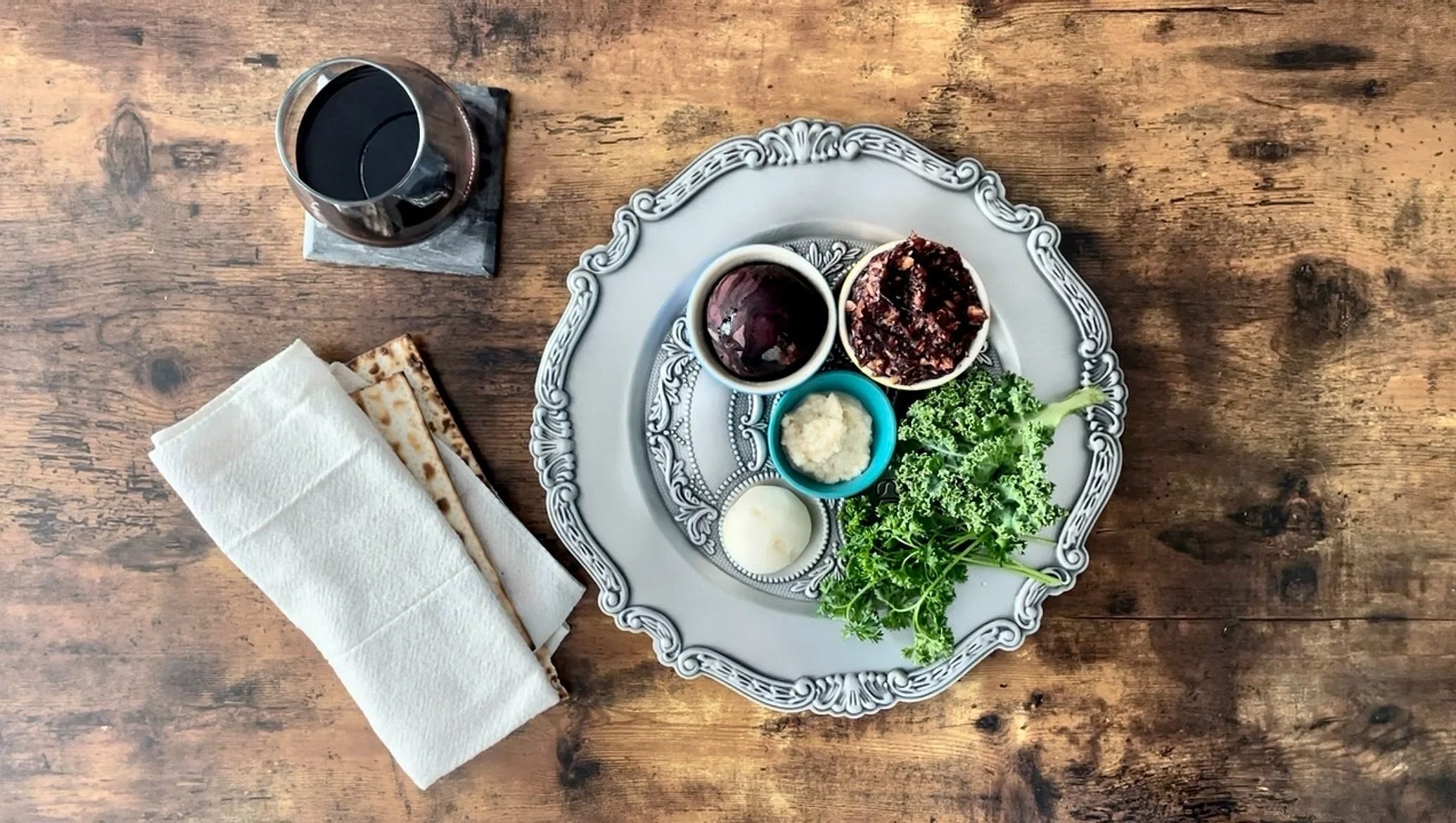Eggs-odus: Liberating Your Seder Plate
Passover is a time of reflection, renewal, and justice, but as we gather around our seder tables to retell the story of liberation, we often overlook whether or not the food symbols on our plates align with these principles. One symbol in particular—the beitzah (roasted egg)—calls into question our Jewish values.
Traditionally, the egg symbolizes the cycle of life and renewal, but the realities of today’s egg industry tell a different story. As bird flu plagues farms, causing egg shortages, and record-high prices, we are confronted with the fragility and ethical concerns of our food system. Passover is a holiday that calls us to examine injustice so we must ask: why should this year’s seder plate be different from all other years?
The Reality of the Egg Industry
While the beitzah is meant to symbolize life, the egg industry tells a different story—one of suffering and exploitation. In contrast to the idyllic farms pictured on their cartons, the majority of all eggs produced in the United States come from hens raised in factory farms. These factory farms source female chicks from breeding facilities–where male chicks are killed right after birth by methods like asphyxiation or maceration–and confine them to a building packed with 50,000 to 350,000 other birds. This laying house deprives hens of their natural environment and makes it impossible to express their instinctual foraging, scratching, and pecking behaviors. To prevent aggression in these stressful, artificial conditions, the birds have their beaks painfully trimmed, without anesthesia, as chicks. Once their egg production declines–usually at 18 months old, a fraction of their natural lifespan of up to 8 years–they are slaughtered.
Beyond poor animal welfare, the egg industry is also devastating to the environment. Industrial egg production may have a smaller environmental footprint compared to broiler chickens (birds raised for meat) and other animal production but one that is still greater than plant-based food sources like tofu, nuts, and vegetables. In addition to harming the planet, industrial poultry farms release harmful contaminants into our water, air, and soil posing health risks to the people who work on or live near their operations.
There are many labels on cartons that seemingly offer consumers the chance to buy eggs that come from higher welfare farms or farms with better sustainability practices. While select certification labels are signifiers of higher standards, the majority of terms we see are marketing efforts that are unregulated and intentionally vague to dupe well-intentioned shoppers. Labels overstating their environmental and animal welfare benefits are known as greenwashing and humanewashing, respectively.
Even kosher egg production standards are identical to typical factory farm practices and do not guarantee hens better treatment during their shortened lives. Both kosher and non-kosher industrial egg farming is built upon systemic cruelty that conflicts with tza’ar ba’alei chayim, the Torah-based value that teaches the importance of preventing unnecessary animal suffering.
How Factory Farms Made the Egg Shortage Worse
In recent years, egg shortages have made headlines, causing price spikes and empty grocery store shelves. The primary culprit? Highly pathogenic avian influenza (HPAI) A(H5), better known as avian flu or bird flu. Even when a virus originates in wild animals, factory farms create the perfect breeding ground for zoonotic diseases like bird flu to become pandemics.
The more confined and genetically uniform a population, the easier it is for a virus to spread like wildfire. Once an outbreak occurs, entire flocks are culled (killed) en masse in an attempt to stop further spread. Since 2022 over 168 million birds have been affected by bird flu. In January and February 2025 alone, 30 million commercial egg layers were impacted by HPAI.
The egg industry’s reliance on massive, centralized operations means that when disease strikes on factory farms, the entire system is disrupted. Egg prices increased by 59% from early 2024 to 2025 with a record-setting average cost in January of $4.95 per dozen. Unfortunately, retail egg prices are predicted to rise 57.6% in 2025, largely due to the continued impact of bird flu. This multi-year crisis exposes some of the risks and injustices of a food system reliant on factory farming.
Reimagining the Seder Plate with More Ethical Alternatives
Passover is a holiday of liberation—not just from Pharaoh’s oppression, but from habits and customs that no longer serve us. Some may argue that removing the egg from the seder plate is a break from tradition. But Jewish history tells a different story—one of evolution, adaptation, and reinterpreting rituals to align with contemporary values.
The earliest seders did not include an egg or shankbone. The Mishnah—the oldest recorded Jewish legal text—describes a seder consisting of matzah, maror, haroset, and two cooked dishes. But those two cooked dishes weren’t an egg and a bone—they were likely beets and rice. Some suggest that beets and rice were chosen because they were inexpensive, ensuring that everyone—regardless of wealth—could partake in the holiday’s joy.
Over time, new cooked dishes were added and with them, new assigned meanings. The shankbone came to symbolize God’s strength in liberating the Israelites, and the egg was reinterpreted as a sign of renewal and resilience. But if history has shown us anything, it’s that tradition is not stagnant—it evolves.
We can embrace having two cooked dishes on our seder plate in a way that aligns with Jewish ethics and modern sensibilities. This year consider swapping out the egg for another round food that also signifies the cycle of life; a white radish, peeled potato, or even a white eggplant. You can also opt to add a spring flower to represent renewal in a natural and life-affirming way. These options preserve the egg’s intended symbolism while shifting the tradition to better reflect our values. In reimagining our seder plate we acknowledge our history and our power to contribute to a healthier world and brighter future for all.
Looking for ways to incorporate more compassionate and sustainable food practices in your Jewish community?
Contact us for a FREE food policy consultation!



